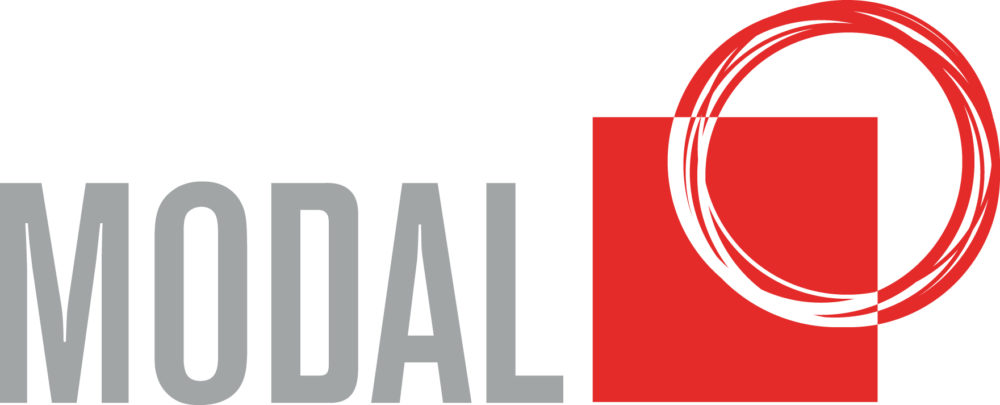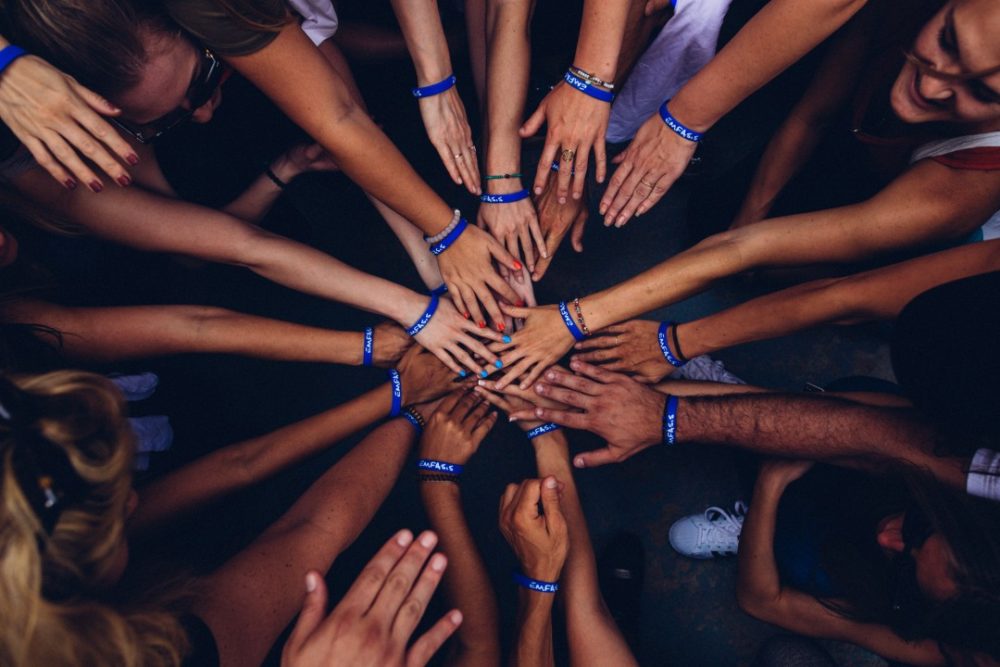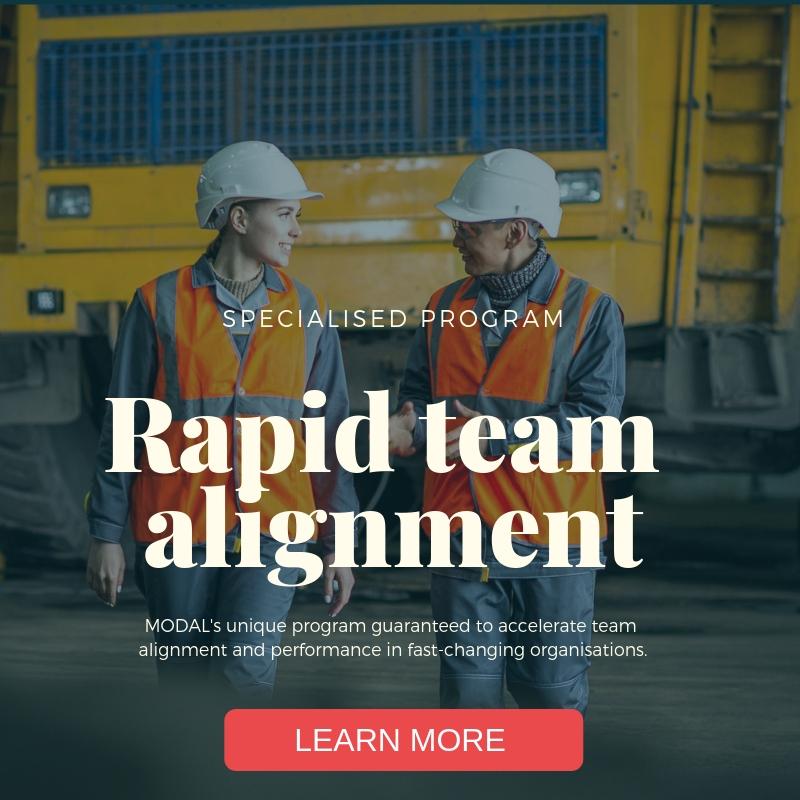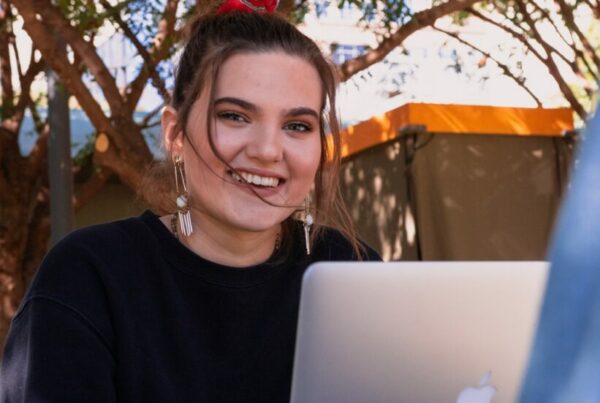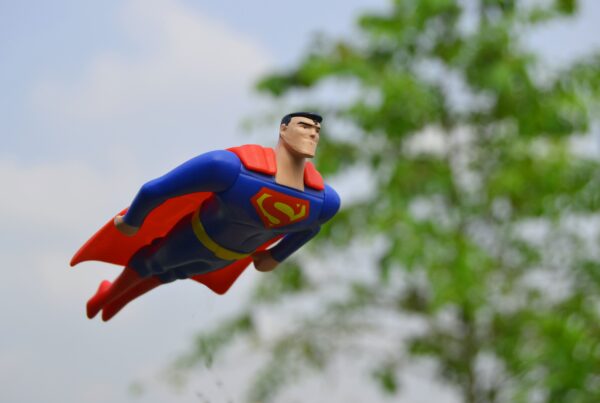What are the tensions like in your team? Are you being stretched equally? I recently heard a story that illustrates the dynamics of a team through the analogy of a tarp. Picture this, the family is off on a camping weekend and after erecting the tent it’s time to protect the site from the sun (in Australia) or rain (anywhere else!) by securing a large tarp over the area. Each member of the family of four goes to one corner of the tarp, ties on a rope, steps back a bit and holds firm. The tarp is gradually lifted higher and higher ready to attach to a nearby tree. As the tarp rises Dad gets frustrated with the slow progress and pulls hard on his corner at the same time as Bored Teenage Daughter thinks this is a waste of time and lets go. Dad goes flying backwards and lands in the bushes! Meanwhile Mum and Younger Son are left standing laughing with a sagging tarp.
Henry Ford says, “Coming together is a beginning. Keeping together is progress. Working together is success”. It is the collective energy of the individuals working together that make the difference. When Dad takes too much force and Daughter lets go, they are being counterproductive and throwing the team into disarray.
So, how do you create a strong team where individuals come together, keep together and work together whilst ensuring one doesn’t give up half way through or take on too much and go flying into the bushes?
Although teams are collective, it is important to remember they are made up of individuals and each team member has their own needs. Taking care of yourself in order to best perform within the team is one step in overall increased performance.
Ensuring you are performing at your best includes:
Taking care physically – Are you getting enough sleep? Enough exercise? Do you have a balanced diet?
Taking care mentally – Are you tapping into your thoughts to encourage self-awareness? Are you keeping yourself in a positive mindset? Do you set goals/actions, and do you work towards them?
Higher levels of performance are also related to higher self-efficacy or the perception of confidence in achieving the task at hand. According to research, higher self-efficacy for a given task leads to increased effort in that task and that effort will be sustained over a longer period of time¹. In other words, those with higher self-efficacy are more likely to put the hard work in and stick with it until completion. They are less likely to get bored and let go of the rope.
There are four sources of self-efficacy:
Mastery experiences – successful experiences boosts self-efficacy.
Vicarious experiences – seeing similar people succeed or hearing their success stories motivate us to believe that if they can do it, we can too.
Modelling experiences – we are more willing to put in the effort if we see and hear those that we admire achieving great things.
Emotional and physical experiences – keeping in positive thought and taking care of ourselves both mentally and physically.
As leaders, I challenge you to look through these four areas and think about what can be implemented in your team to give each member the best chance of high self-efficacy. Here are a couple of ideas to get you started:
Mastery
– Celebrate successes.
– Create a safe environment, one that is open to learning from mistakes. As the CEO of WD40, Gary Ridge says, “there are no mistakes, only learning opportunities”.
Vicarious
– Communicate successes within the team and between teams. If they can do it, we can do it.
Modelling
– Be a role model for your team by supporting a positive, can-do environment.
– Practice Growth Mindset.
Emotional and physical
– Ensure regular breaks.
– Have some fun!
Bringing individuals who display high self-efficacy together creates a collective effectiveness that allows the team to achieve great things. This sense of potency, or the collective belief within a team that it can be effective², gives the team confidence and is an important component of effective team performance.
Ensure your tarp is secured on all sides and work together towards success.
